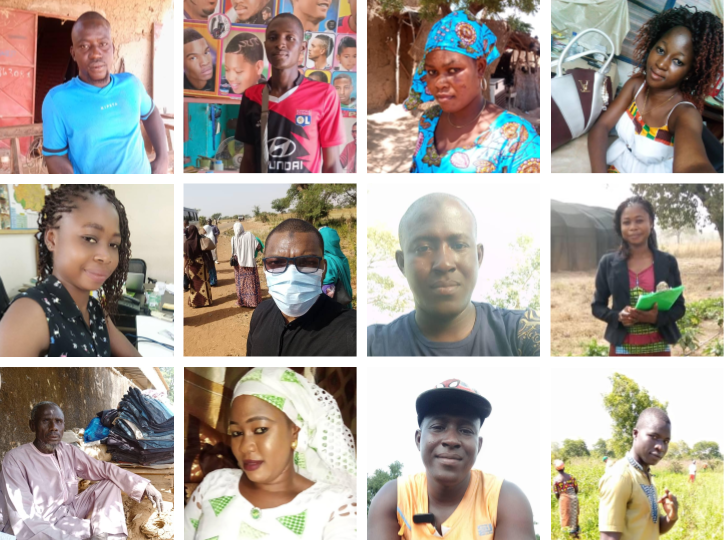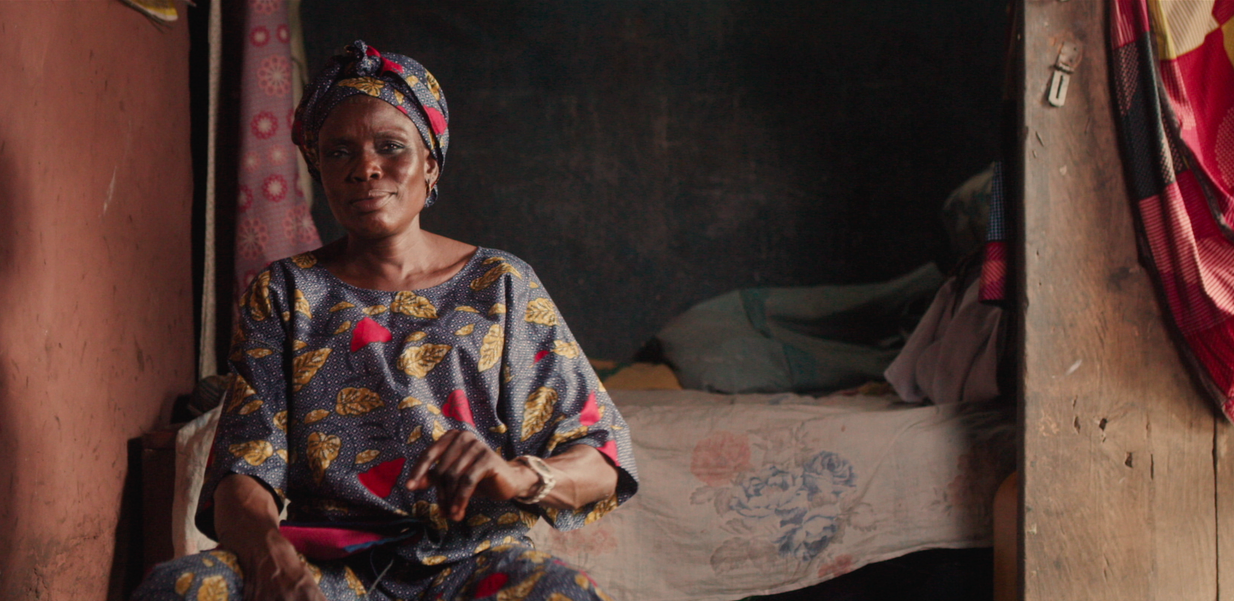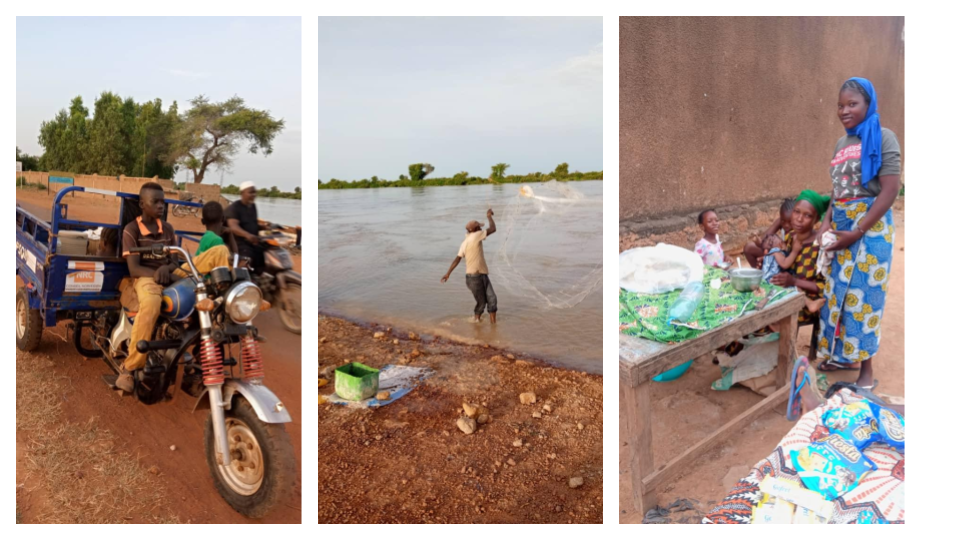Dalberg uses cookies and related technologies to improve the way the site functions. A cookie is a text file that is stored on your device. We use these text files for functionality such as to analyze our traffic or to personalize content. You can easily control how we use cookies on your device by adjusting the settings below, and you may also change those settings at any time by visiting our privacy policy page.
An extensive Dalberg study across West Africa that captures people’s stories from the early days of the pandemic and backs them up with data, could provide helpful insights to anchor future crisis response and recovery efforts around the needs of society’s most vulnerable.
Early on in the pandemic, Dalberg recognized how important it would be for relief efforts in West Africa to have a deep understanding of the impact of the crisis on low- and middle-income people. As governments tried to protect their populations while balancing financial and food relief expectations and staving off economic collapse, Dalberg partnered with Open Society Initiative for West Africa (OSIWA) to conduct a mixed-method research study spanning seven countries in the region, namely: Mali, Niger, Burkina Faso, Côte d’Ivoire, Ghana, Senegal, and Nigeria.
The hope was that by capturing representative human experiences and backing them up with data, decision making and engagement across West Africa would be better informed, and would compel a compassionate and effective policy and programmatic response – not just around Covid, but for other crises that may arise.
With the pandemic now entering a new phase – and as nations reflect – the study’s insights and recommendations could help shape future response strategies in West Africa, a region all too familiar with crisis. Its unique and detailed account of how the region copes with the onset of a major crisis is captured through understanding the social, economic, financial, and psychological impacts on people, and an assessment of the reach and efficacy of policy and programmatic support targeted at low-and middle-income populations.
Speaking about his experience in an interview, an eye doctor from rural Niger reported that, “The government did try to raise awareness about Covid-19 but people didn’t take it so seriously because we live in an African country where people face things like this all the time.” And in Mali, another man observed, “There were serious tensions in the community between those that took Covid-19 seriously and refused to shake hands with neighbors or friends as a sign of greeting, and others who didn’t believe in Covid-19 and felt rejected.”
People’s stories are told in the detailed reports generated by Dalberg that share findings, insights, and programmatic policy recommendations for each of the seven countries. Research-based on in-depth remote Human Centered Design (HCD) interviews, a macro analysis of existing programmatic and policy responses, surveys and reports on the impacts of Covid-19, and a phone-based survey with a nationally representative sample, also included interviews with NGOs and community-based organizations (CBOs).

What may stand out for policymakers and governments are the opportunities for intervention set out by Dalberg around each of the four themes of the study that explore:
- people’s financial health and livelihoods
- awareness and access to support services
- attitudes and psychological well-being
- programmatic and policy gaps and best practices
Tensions in the Region
In the case of Côte d’Ivoire, where a history of post-election violence provoked a sense of fear and instability among Ivorians around the October 2020 presidential election, many people interviewed were more afraid of the after-effects of the election than the virus itself. This uncertainty further affected the financial stability of many micro, small and medium enterprises (MSMEs) — usually a bedrock of livelihoods and the economy.
A 34-year-old entrepreneur and mother-of-two in rural Côte d’Ivoire revealed how she was on the brink of opening a new restaurant when the pandemic broke out. But when the government ordered restaurants and other businesses to close, she was unable to recover what she had already invested, nor meet bank demands for her loan repayment. She tried applying for government support but nothing was forthcoming. She suspected this was because she was not affiliated with any political party, where funds are often used to reward allegiance — especially in an election year.

Other MSME owners in Côte d’Ivoire felt they were already struggling from the impacts of Covid, and many shied away from signing new contracts in the climate of uncertain political outcomes. Furthermore, access to credit for individuals and businesses became difficult because investors—such as banks and insurers—would not take on added risk at that time.
Steps to Address the Challenge
To address these and other issues, Dalberg’s report offers specific recommendations on how to grow the variety of economic support channels available to MSMEs to enable them to cope during business downturns, and on how to support already fragile agricultural value chains to boost business income and increase food security.
Recommendations include fostering partnerships between MSMEs, business incubator programs, NGOs, and CBOs that provide capacity building through networks, financial support and training, and to transition them to remote operation; as well as strengthening the ability of sector groups to identify and advocate for MSME needs—then distributing resources accordingly.
The nurturing of favorable business environments in ways such as linking supply chain actors to markets through import fee reductions, subsidies, and other concessions, is also recommended in the study. Financial products must be tailored to meet the needs of excluded groups such as women and informal workers, and any tools that are used need to integrate with existing financial systems. Furthermore, using trusted, vetted media channels in remote areas is advised to ensure people are equally informed.
Dalberg also recommended promoting local production and prioritizing specific value chains that follow national food priorities in order to meet import shortages — e.g., food crop producers, manufacturers, wholesalers, and retailers, to promote food security and business growth. Further country-specific recommendations are made in the Côte d’Ivoire report, and in reports for each of the other countries studied.
Adjusting to Border Closures, Lockdowns, and Curfews
In the experience of a farmer in Mali, who relies on NGOs for inputs and to store his crops, border closures exacerbated existing problems brought on by the country’s hostile political environment. His access to the essential fertilizers needed for growing crops was restricted as suppliers struggled to bring them into the country, and NGOs were prevented from buying his crops — for the second year running. The previous year “NGOs didn’t come and buy our crops because of the terrorists around us, and this year there’s Covid. My crops are just going to waste and I also can’t farm the rest of my land because I don’t have the money.” For him, local markets bring in only a third of the price he’d otherwise get.
In Senegal, the first Covid case was reported on 2 March 2020. The curfews and lockdowns that followed led to the collapse of Dakar’s thriving night-time economy, crippling restaurants, bars, and other entertainment venues, as well as street vendors and other informal workers. The collapse also reduced people’s willingness to comply with government guidelines, and coincided with the progression of misinformation specifically around the vaccine’s distribution and effects, which threatened to undermine the robust Senegalese healthcare infrastructure.
Dalberg’s recommendations focused on ensuring business continuity while complying with Covid regulations so that people could resume their economic activities, and making use of established and trusted information channels to dispel rumors and misinformation on Covid and vaccines.
Dalberg also looked at how to implement social protection programs that are equitable across sectors, gender, and geography to maximize the reach of aid, and how to monitor the impacts of government and non-government support packages that are provided to communities to build trust and encourage uptake.
To support the recovery of the night-time economy, Dalberg recommended maintaining price stability by increasing transparency on market prices and providing vendors with reliable access to markets to counteract supply chain disruptions. And, by linking informal groups and community-based organizations to existing feedback mechanisms, such as toll-free lines and SMS channels, communication lines on how government support programs are implemented could be strengthened. Dalberg also recommended continuing to target specific groups for aid distribution — for example, older women and school children — and ensuring that systems are adequate to monitor distribution efficiency.
Applying Learnings to the Future
People tell their own stories in the study and these accounts indicate how most decisions during this time required trade-offs, that delivering on one decision could mean jeopardizing another, particularly for most of the population who survive on low incomes and have minimal access to support.

Public, private, and third-sector responses had to navigate these stark choices, recognizing that if they were unable to help their vulnerable populations survive both the public health and economic crises, progress could be handicapped for a generation.
As the dust settles on the crisis for now, and with the benefit of hindsight, there is an opportunity to learn from what happened. This rare body of work presents unique insights and information to inform decision-making for future crisis response in the region.
For details and more information on this extensive study, visit https://www.covidwestafrica.com.
Summaries of the study, findings from individual countries, and detailed country reports are all available for download.
The photos featured here were self-shot by community members and shared here with informed consent.

